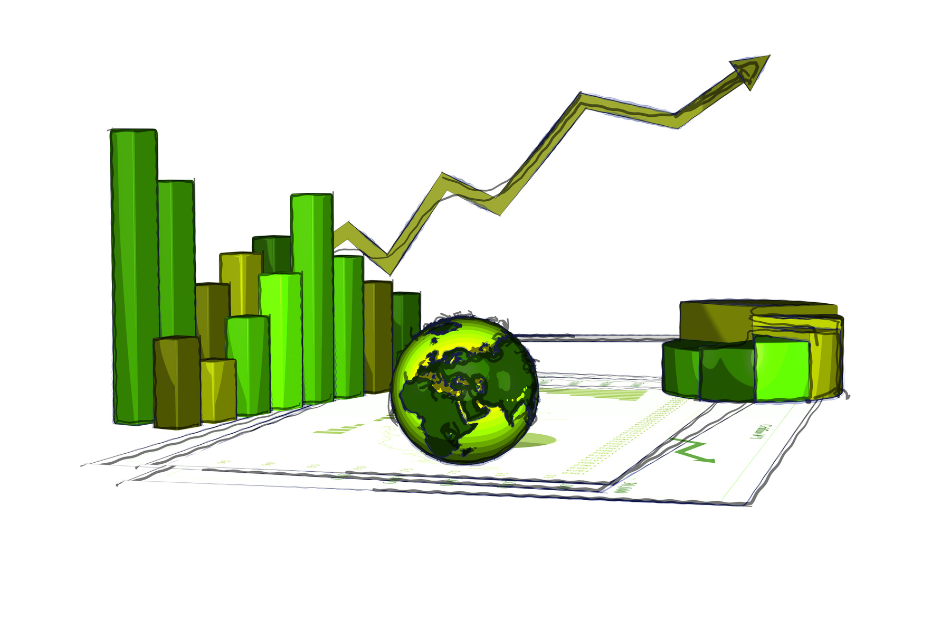
Aizen
GO GREEN ECONOMY
GO GREEN ECONOMY
Investments in physical infrastructure and technology upgrades are needed to radically improve recycling economics, quality, and uptake.
Unless people completely change the way they live their lives, particularly their relationship with animal species, this pandemic crisis will be one of many. The economic impact of the coronavirus is devastating; however, states with social protection systems are coping better with this crisis than states with purely liberal economic order.
The already challenged role of the European Union has been undermined by this crisis. Therefore, an ambitious plan with an economy geared towards the circular economy and the green economy could help EU countries reactivate their economies. With the United States withdrawing from the international scene, the European Union could be a model for the sustainable reactivation of its economy.
Following the economic crisis caused by COVID-19, a new agreement is needed. So what is the impact of the EU's circular economy on the global economy? The EU Action Plan for the Circular Economy is one of the key components of the European Green Deal. It is a new agenda to achieve sustainable growth in the coming decades.
To meet these short- and long-term ambitions through a circular economy, policymakers have to play a vital role in a bid to have positive outcomes:
Setting a common direction of travel: a resilient recovery with the circular economy
Shaping incentives to enable a circular, low-carbon economy
Fostering collaboration to obtain system-level solutions
Unlocking circular investment opportunities to meet key public priorities
A new deal is important after the monetary disaster as a result of Covid-19. So what are the results of the EU circular economy on the global economy?
Implications of the EU’s Circular Economy On The Global Economy
The EU’s Circular Economy Action Plan is one of the key components of the European Green Deal. It is a brand new timetable for accomplishing a sustainable boom over the coming decades.
The round economic system motion plan consists of projects throughout the whole lifecycle of products; from preliminary product layout to the processing of recyclable materials. It is a formidable and transformative venture that will contain many monetary and social changes.
Reduced Demand for Virgin Herbal Resources:
The EU’s circular economic system has numerous tasks designed to enhance conservation. They consist of the advanced use of second-hand goods, product recycling, fabric repurposing, and strength extraction from waste.
These measures will boost the round-the-clock use of unrefined substances and the sharing of secondary assets in the unrefined fabric supply. This could be impactful in lowering the EU’s desire for virgin herbal resources.
As a result, there could be much less demand for strength products (oil, gas, and petroleum), wooden pulp, plastics, metals, and a few different substances within the EU. However, it’s really worth noting that this can be partly offset with the aid of a growing call for unrefined substances from growing international locations within the global economic system.
Some aid-wealthy, growing international locations can also experience a decline in exports due to the global economic system. However, there should be a call for uncooked substances, which the EU round economic system can't gain easily, which include cobalt, lithium, neodymium, graphite, and dysprosium.
Lessened exposure to supply risk for EU:
The current COVID-19 epidemic has highlighted the fragility of global delivery chains. The EU's round-the-clock economic system is anticipated to lessen the EU’s dependency on imports because the economic system could be extra self-sufficient. This will shield the economic system from geo-political events, pandemics, and herbal failures, which might also additionally contribute to supply chain instability.
Global exchange in recyclable substances to change the EU round economic system will see extra merchandise re-getting into the economic system as recycled or repurposed substances. Whenever merchandise attains its end of life, it may be converted into gadgets of monetary value, if you want to be traded as soon as possible.
Currently, the EU is a prime exporter of recycled substances, which might ordinarily be dispatched to China and Turkey. Some of those substances have also been dispatched to South-East Asia (Thailand, India, Vietnam, Indonesia and Malaysia).
Impact of product policy on global trade
The extended producer responsibility (EPR) scheme will also come into play. These changes are likely to make it more difficult for non-EU manufacturers to import products into the EU, as they have to meet higher quality standards.
The other important change is that EU manufacturers may face higher costs. This can put them at a competitive disadvantage when exporting to foreign markets. New economic and employment opportunities are driven by technology. The EU circular economy will require innovation from manufacturers, recyclers and regulators. It also means a significant investment in technology that will boost economic growth and job opportunities.
These opportunities will help the EU economy grow and increase the types of products and services it exports. Global environmental standards are also expected to improve as EU companies work with international partners.
AIZEN CONSULTING
If you're most of the many seeking to capitalize on the thriving commercial enterprise economic system in Turkish, France, Senegal & India we will assist. At AIZEN CONSULTING, you aren't simply some other client, but someone we will assist with a variety of offerings. Specifically, our consultancy offerings will substantially assist you to navigate the once-in-a-while perplexing global commercial enterprise in Turkish. We recognize how that will help you succeed, so touch Aizen today.
Bibliography
EU circular economy and trade: Improving policy: Improving policy coherence for sustainable development (2019). Marianne Kettunen, Susanna Gionfra and Misty Monteville
A European Green Deal - Striving to be the first climate-neutral continent
International Trade and the Transition to a Circular Economy